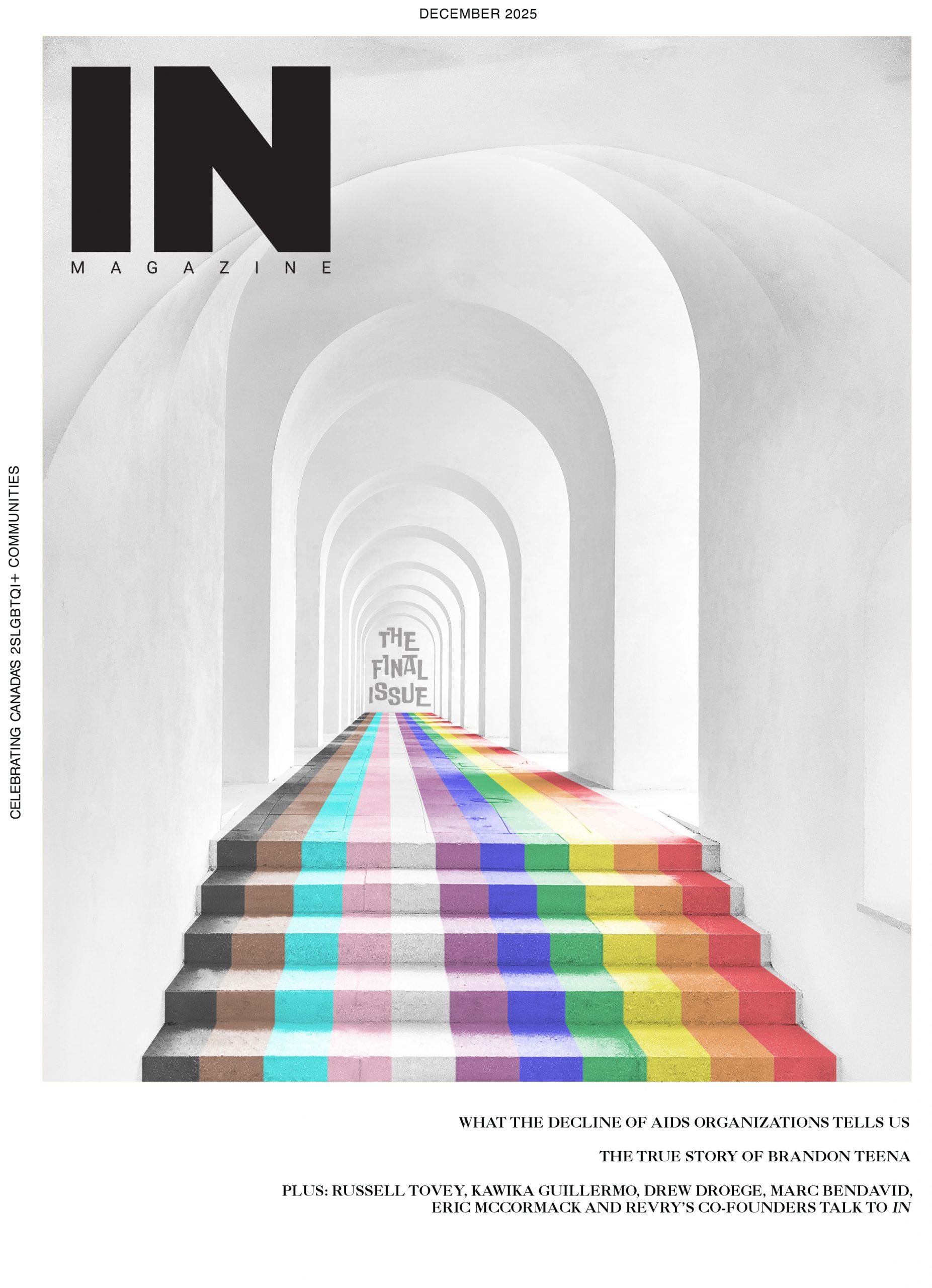Donald Trump ditches Pride Month for Title IX Month. Why it matters for Canada—and how U.S. culture wars keep crossing our borders…
By Richard Holman
A political statement, disguised as a commemoration
It’s not just rainbow flags that are missing this June. In a move that reads like both political posturing and cultural rollback, the U.S. Department of Education—under the revived influence of Donald Trump—announced that June will no longer be recognized as Pride Month. Instead, it’s been rebranded as “Title IX Month,” marking the 53rd anniversary of the 1972 civil rights law meant to protect against sex-based discrimination in education.
On the surface, celebrating Title IX might seem harmless—even overdue. But the timing, the language, and the broader context of this shift make the intent crystal clear. This isn’t just a new commemorative label. It’s an erasure. And for LGBTQ+ Americans—and even Canadians watching from across the border—it signals something much deeper: that the recognition of queer lives is no longer politically convenient in Trump’s America.
What is Title IX, and why now?
Title IX was designed to prevent sex-based discrimination in federally funded education programs. It has been historically lauded for increasing athletic and academic opportunities for women and girls. But under Trump, Title IX has increasingly been used as a cudgel against trans rights—particularly trans women in sports and education.
The Department’s statement emphasized “reversing the Biden Administration’s legacy of undermining Title IX,” and doubled down on “protecting women” by launching new investigations into schools that allowed “males” in female-only spaces—language that pointedly misgenders trans students.
This isn’t just bureaucracy. It’s a loud, deliberate dog whistle. And it’s not happening in isolation. It’s part of a wider rollback that’s been gaining traction in conservative circles: banning books, limiting gender-affirming care, and stripping queer visibility from public spaces and policies.
From pride to politics: The calculated timing of the announcement
The announcement came on June 2—one day after Pride Month would typically kick off across the U.S. and Canada. This wasn’t coincidental. For years, U.S. federal departments would raise the rainbow flag and issue statements of solidarity. Under Biden, embassies lit up, social feeds acknowledged the LGBTQ+ community, and departments across the board recognized Pride Month officially.
Now, in 2025, we’re watching a calculated retreat.
There was no mention of Pride in the Department of Education’s statement. Not a word. Instead, what we got was a reframing of June that entirely removed LGBTQ+ Americans from the national calendar. Title IX Month is not additive—it’s replacement. And that’s the point.
Why Canadians should pay attention
Canada isn’t immune to American culture wars. If anything, we’ve seen firsthand how American rhetoric has seeped into our own school board meetings, social media debates, and political campaigns. Just look at the 1 Million March 4 Children protest in 2023—a movement largely sparked by imported misinformation and amplified by right-wing American influencers.
When the U.S. shifts gears on human rights, we feel the tremors. Policies and perspectives from the U.S. often embolden similar sentiments here, especially in communities already skeptical of inclusive education or trans rights. We’re not just passive observers—we’re downstream recipients of American culture and, increasingly, its political aftershocks.
So when Trump declares Pride Month is over, it reverberates in Canadian classrooms, Pride parades, and policy tables. The question isn’t if it affects us. It’s how long until it does.
The broader strategy: Anti-trans rhetoric as political capital
Trump’s declaration isn’t about policy so much as it is about optics. Title IX Month is being framed as a “pro-woman” stance—but it’s telling that it’s being weaponized specifically to target transgender people. It follows a predictable pattern: redefine women’s rights in a way that excludes anyone who doesn’t fit into a narrow, biologically essentialist framework.
This is part of a larger electoral strategy. The GOP has increasingly turned to anti-trans sentiment as a reliable culture war battleground—one that riles up the base, garners headlines, and creates clean rhetorical lines between “us” and “them.”
In the U.S., that might win votes. In Canada, it risks legitimizing fringe voices who see America’s regressions as roadmaps.
Pride Month isn’t just symbolic—it’s protective
Critics might argue that swapping one month for another isn’t a big deal. But Pride Month isn’t just about symbolism—it’s about visibility, validation, and safety. Queer and trans youth, in particular, look to these public recognitions as signs that they’re seen, supported, and part of a society that wants them to thrive.
When you remove that recognition from a national calendar—especially in a year where anti-LGBTQ+ legislation is on the rise—it sends a chilling message. It tells LGBTQ+ people: you’re not welcome here, not this month, maybe not ever.
And in Canada, where many queer youth already face mental health challenges, rising hate crimes, and underfunded support systems, this erosion of visibility—even if it starts across the border—can do real harm.
What Canadians can do
We don’t control U.S. policy, but we do control our response.
- Speak up: When Pride visibility is under attack—even elsewhere—we need to be louder in our solidarity. Local businesses, schools, and governments should reaffirm their support explicitly.
- Support queer media and organizations: From Rainbow Railroad to The 519, Canadian orgs are doing frontline work that often fills in the gaps left by political inaction.
- Challenge imported rhetoric: Whether it’s book bans or “parental rights” bills, we must recognize when American talking points show up in Canadian debates—and push back accordingly.
This is about more than a name
This isn’t just about Trump. It’s about a growing, coordinated attempt to make LGBTQ+ people less visible, less valid, and less protected—under the guise of “protecting women” or “returning to tradition.”
Title IX Month isn’t inherently problematic. But replacing Pride Month with it is. Especially when it’s done to exclude, not include. And for Canadians, it’s a warning: the culture war doesn’t stop at the 49th parallel. If we want to stay ahead of it, we need to name it, resist it, and double down on the values we claim to believe in.
Because if visibility is political now, then so is silence.






POST A COMMENT